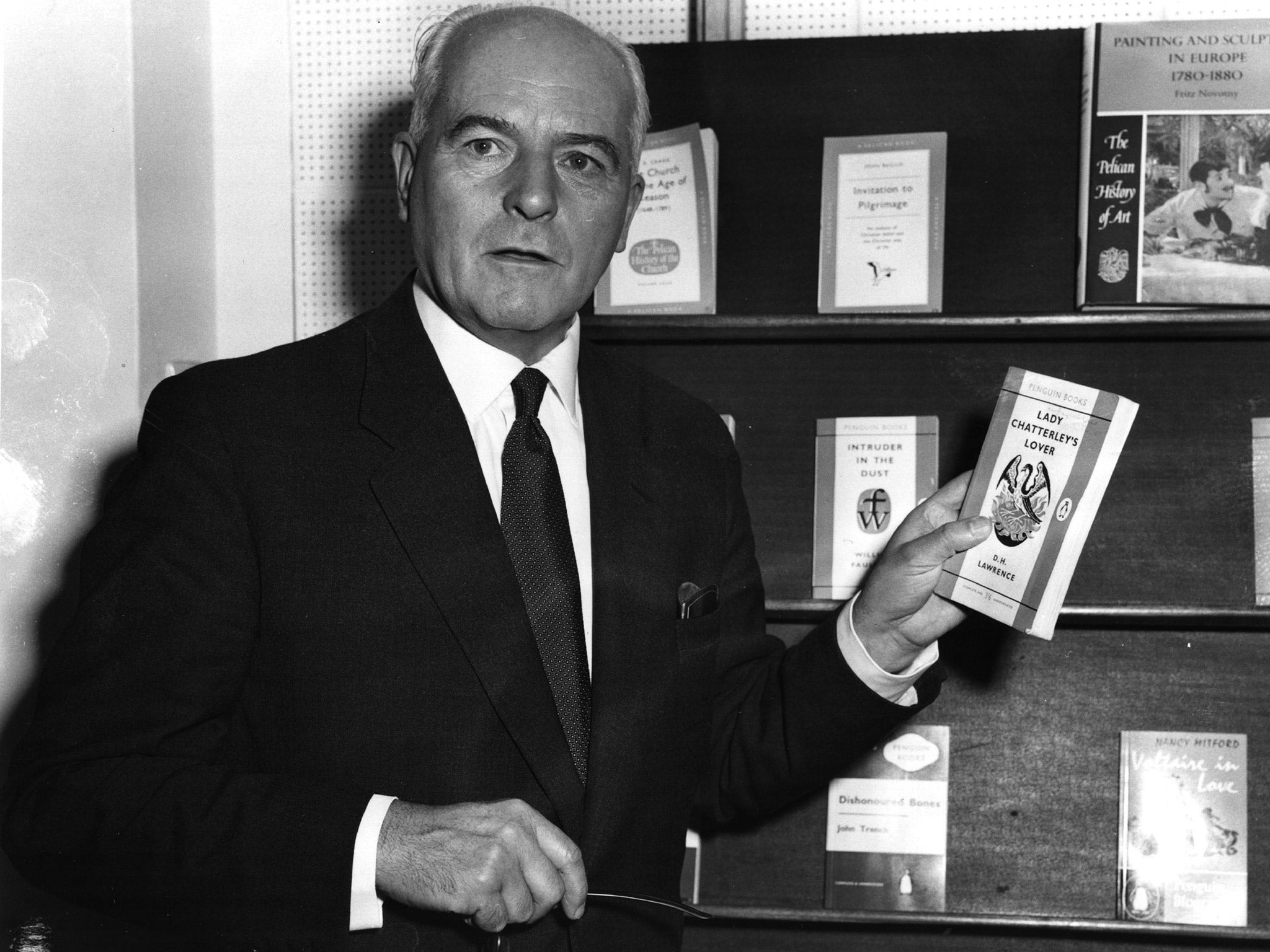Penguin Books turn 80: Founder's daughter reveals Sir Allen Lane's defining cultural moment.
To mark 80 years of Penguin Books, Clare Morpurgo, the daughter of the company’s founder, talks about her father and his defining cultural moment.

Clare Morpurgo seems to have spent her entire life bumping into literary titans. There was her first meeting with Michael Morpurgo – author of War Horse and more than 100 other books, former Children’s Laureate and her husband of 52 years. The holiday romance in Corfu started with a Romeo and Juliet-style encounter at her window. Clare, ready for bed, was told by the hotel owner that the son of a family friend was outside waiting to see her. “So I went out on to this balcony – and there on this rubbish heap was standing this lovely young man.”
Then there was her close friendship with Ted Hughes. Having set up home in Devon in 1974, the Morpurgos were walking down the river “and this man sort of loomed out towards us. We recognised him straight away”. They were firm friends until the poet’s death.
Perhaps there is a bookish stardust that follows the 73-year-old around. Although she says most people nowadays have little idea that she is part of Britain’s literary royalty, as the eldest daughter of Sir Allen Lane, the man who founded Penguin Books 80 years ago.
The story has become folklore: after a weekend visiting Agatha Christie, Lane found himself on a station platform perusing its bookstall. Appalled by the selection, he decided that top-quality fiction should be made available in paperback at the price of a packet of cigarettes.

This Saturday, to mark Penguin’s anniversary, Clare will be speaking about her father in public for the first time – at the Ryedale Book Festival in North Yorkshire.
When I ask what he was like, she instantly addresses his notoriously short temper. “Well, obviously a lot of people did find him quite difficult but I just thought he was the best. He was so mercurial – that’s the word everyone always uses about him.”
Penguin books have been admired almost as much for their aesthetic appeal as their literary merit – Lane declared early on that “good design is no more expensive than bad” – and the man himself was admired for his jackets. “Everyone commented on his sense of dress,” says his daughter (a natty dresser, too, wearing knitted waistcoat, jeans and orange plimsolls). “He was quite overweight, so he was always having suits made that covered up his tummy and he was always going on awful regimes to lose weight.
I ask what her father made of the news that his first-born daughter was pregnant and arranging a shotgun wedding at 20. “He was not best pleased,” Clare says, “and he was not very nice to Michael”. He reportedly thought his future son-in-law dull as well as a potential gold-digger. Lane may also have been upset about another of Clare’s decisions. When she was eight or nine, he gave her The Hobbit to read and critique.
She told him she didn’t like it and he didn’t publish it. “I think I just had a slight problem being a reviewer when I wasn’t asked just to enjoy it for my own sake.”
As she reflects on how her father came to be one of the greatest cultural forces of the 20th century, Clare says that the Lady Chatterley’s Lover trial in 1960 was the defining moment. Having published the D H Lawrence novel that had been banned for decades, Lane had to fight an obscenity trial – and found himself at the cutting edge of the sexual revolution.
Clare, who attended the final day at the Old Bailey and recollects the relief on her father’s face, is unimpressed by the decision of the director of the recent BBC adaptation not to include a single fuck or c***, the words that caused all that fuss in the 60s, because they no longer “seem relevant”. “He’d have thought it ridiculous, chopping out those swear words. All the fuss to get it through and then people drop it and say it’s not worth it.”
Perhaps it is a sign of the scale of her dad’s revolution, she adds – with life so transformed since his titles, and his trial, we struggle to remember what things were like before that little orange bird ushered in social change.
“People can’t imagine life without Penguins now,” she muses.
Clare Morpurgo will be speaking at Ryedale on Saturday. ryedalebookfestival.com.
Join our commenting forum
Join thought-provoking conversations, follow other Independent readers and see their replies
Comments
Bookmark popover
Removed from bookmarks